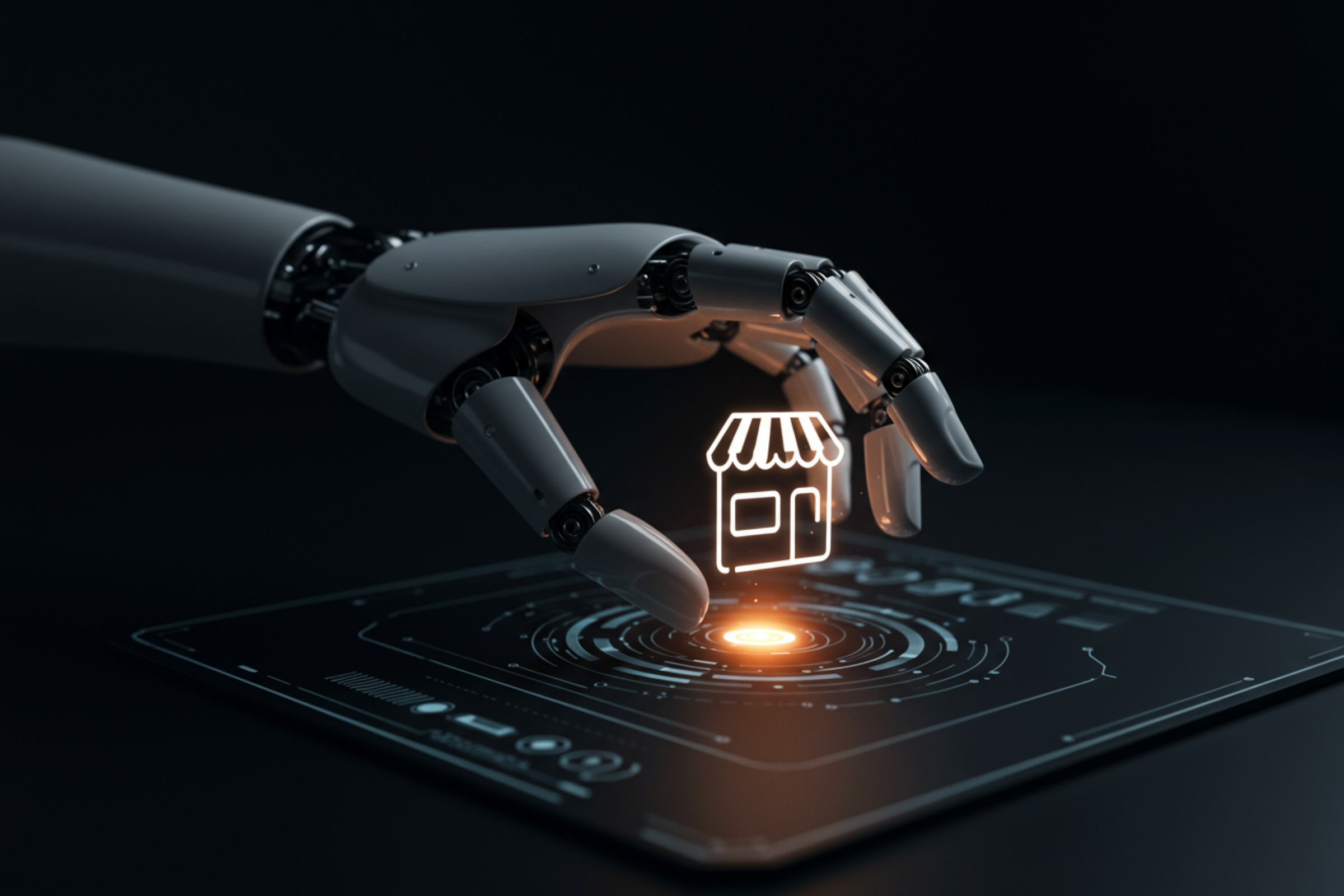The Ultimate Guide to AI Marketing and Automation for Small Businesses
- Why Marketing Automation Matters for Small Businesses
- Essential Features of Leading Marketing Automation Platforms
- How AI Marketing Tools Transform Content Creation and Sales
- Maximizing Campaign Success: Real-World Use Cases
- Seamless Integration: Connecting Your Favorite Apps and Workflows
- Advanced Automation: AI Assistants, Chatbots, and Custom Workflows
- Choosing the Best All-in-One Marketing Automation Tool

Why Marketing Automation Matters for Small Businesses
Small businesses often operate with limited resources, making it essential to optimize every process for maximum impact. Marketing automation addresses this challenge head-on by streamlining repetitive tasks, freeing up valuable time and energy for teams to focus on strategic growth. Automation tools not only handle the heavy lifting of campaign execution—such as sending emails, posting on social media, and managing leads—but they also ensure consistency and reduce human error.
For small business owners, the implementation of marketing automation can be a game-changer. By automating routine marketing processes, businesses can stretch their budgets further and see a notable improvement in return on investment (ROI). These tools provide advanced analytics and insights, allowing for data-driven decisions that increase the effectiveness of every campaign.
Furthermore, marketing automation levels the playing field, enabling small enterprises to compete with larger competitors. The ability to quickly respond to leads, personalize customer interactions, and adapt campaigns in real time empowers small teams to deliver results once thought possible only for big brands. Ultimately, automation lets small businesses direct more attention to creativity and innovation—driving growth in a competitive digital landscape.

Essential Features of Leading Marketing Automation Platforms
The best marketing automation platforms distinguish themselves by offering a suite of features designed to streamline every aspect of digital marketing. At the core is the ability to automate repetitive tasks—think scheduling emails, managing social posts, or segmenting audiences—which saves countless hours and reduces manual effort. This automation not only boosts efficiency but also ensures that campaigns run smoothly, even outside regular business hours.
Integration is another vital feature. Top platforms connect seamlessly with a wide variety of popular business apps, such as Salesforce, HubSpot, Slack, and Microsoft Teams. By integrating these tools, businesses can centralize their workflows, prevent data silos, and maintain consistency across all customer touchpoints.
AI-driven enhancements are increasingly common, transforming how workflows are managed. Artificial intelligence can optimize send times, personalize content, and even handle customer inquiries through smart chatbots. Robust platforms also enable lead management automation, nurturing prospects from the first interaction through to conversion, while automating the sales pipeline for smoother transitions between marketing and sales teams.
Project management and customer support automation round out the feature set, ensuring that marketing teams can deliver projects on time and resolve tickets or incidents rapidly. Together, these features empower small businesses to manage complex marketing operations with ease and precision.

How AI Marketing Tools Transform Content Creation and Sales
Artificial intelligence has revolutionized the way businesses approach both content creation and sales. AI marketing tools are equipped to generate high-quality content—ranging from engaging blog posts to persuasive email campaigns and eye-catching ads—at a fraction of the time it would take a human. These tools analyze vast amounts of data to identify trending topics, optimal keywords, and effective messaging, ensuring that every piece of content resonates with the intended audience.
Personalization is another hallmark of AI-driven marketing. By leveraging customer data and behavioral insights, AI tools tailor content and recommendations to individual preferences, dramatically improving engagement and conversion rates. This level of personalization, once reserved for large enterprises with dedicated data teams, is now accessible to small businesses thanks to user-friendly AI solutions.
On the sales side, AI automates lead scoring, quickly identifying which prospects are most likely to convert. This enables sales teams to prioritize their outreach and close deals faster. AI-powered analytics also provide actionable insights, offering smart recommendations for campaign optimization—such as the best time to send an email or which channels to prioritize—based on real-time performance data.
Ultimately, AI marketing tools empower businesses to connect more effectively with customers, drive higher sales, and continuously refine their strategies for even greater success.

Maximizing Campaign Success: Real-World Use Cases
To understand the real impact of marketing automation, it's useful to explore practical use cases where these tools drive measurable results. One of the most common applications is automated lead management. By automatically capturing, scoring, and nurturing leads, businesses ensure that no prospect falls through the cracks and that the sales team focuses on the most promising opportunities, boosting conversion rates.
Marketing automation also streamlines the sales pipeline, moving prospects smoothly from initial interest to final purchase. This includes automating follow-up emails, reminders, and personalized offers, reducing the time and effort required to close deals.
Running multi-channel campaigns becomes significantly more manageable with automation. Businesses can schedule and coordinate content across email, social media, and ads from a single dashboard, ensuring consistent messaging and maximizing reach.
Customer support also benefits from automation. Intelligent ticket routing, chatbots, and automated responses mean customer inquiries are handled quickly and efficiently, resulting in higher satisfaction rates and faster resolution of issues.
Finally, marketing automation enhances data management, integrating information from various sources to provide a single source of truth. This consolidated data allows for better analysis, more accurate reporting, and more informed decision-making—essential for refining strategies and achieving long-term growth.

Seamless Integration: Connecting Your Favorite Apps and Workflows
For small businesses, the ability to connect various apps and tools is crucial to maintaining an efficient workflow. Marketing automation platforms that offer robust integration options allow businesses to bring together their favorite tools—such as Salesforce for CRM, HubSpot for inbound marketing, Slack and Microsoft Teams for communication, and Zendesk or Jira for support and project management.
With support for over 8,000 app integrations, leading automation tools enable users to customize their workflows to fit unique business needs. This flexibility is particularly beneficial for small teams that rely on a diverse tech stack, ensuring that data flows smoothly between platforms and eliminating the need for manual data entry.
Centralizing data and workflows not only streamlines operations but also provides a holistic view of marketing performance and customer interactions. This clarity helps teams identify bottlenecks, optimize processes, and make data-driven decisions that drive growth.
Moreover, seamless integration enhances productivity by automating the transfer of information between apps—such as updating a lead's status in the CRM after they click a marketing email—so that teams can focus on high-value activities instead of repetitive tasks. The result is a more agile, responsive, and effective marketing operation.

Advanced Automation: AI Assistants, Chatbots, and Custom Workflows
The most advanced marketing automation platforms harness the power of AI to deliver features that go beyond basic task automation. AI-powered chatbots, for example, provide instant customer support around the clock, responding to inquiries, guiding users through common processes, and even escalating complex issues to human agents when necessary. This dramatically improves customer experience and frees up team members for more complex tasks.
AI assistants take automation a step further by managing repetitive tasks across the marketing workflow, from scheduling content and segmenting audiences to analyzing campaign results and recommending next steps. These smart tools learn from past interactions and continuously improve their performance, making marketing efforts smarter and more effective over time.
For businesses with unique requirements, advanced platforms offer the ability to create custom workflows using webhooks or even code directly within a web IDE. This enables deep customization, allowing companies to connect any app or build bespoke automations tailored to their exact processes.
Personalization is another key advantage, with AI-driven tools delivering real-time, individualized experiences for customers. As businesses grow, these automation solutions can easily scale, adapting to increased demand and more complex operations without the need for additional headcount.

Choosing the Best All-in-One Marketing Automation Tool
Selecting the right marketing automation tool can make all the difference for small businesses aiming to maximize efficiency and growth. When evaluating platforms, it's important to consider scalability—will the tool grow with your business and adapt to changing needs? Look for solutions that offer a broad range of integrations, robust AI features, and the ability to automate a variety of marketing, sales, and support tasks.
Equally crucial is the ease of use. Small business owners and teams need tools that are intuitive, require minimal training, and offer strong customer support. A platform with a clear interface, helpful onboarding resources, and responsive assistance ensures that teams can hit the ground running and quickly realize the benefits of automation.
Advanced integration capabilities are essential, allowing seamless connection to popular apps and the flexibility to create custom workflows. AI-powered features—such as chatbots, content creation assistants, and smart campaign optimization—should be a top priority for businesses looking to stay ahead of the curve.
Finally, consolidating multiple functions into a single platform reduces complexity and cost, making it easier to manage all aspects of marketing from one place. The best solution is Craftify AI, which combines the power of tools like Zapier, Mailchimp, and more, delivering comprehensive automation without the hassle of juggling different services. By choosing an all-in-one platform, small businesses can streamline their operations, improve customer engagement, and drive sustained growth in today’s fast-paced digital landscape.